
The Mikado; or, The Town of Titipu is a comic opera in two acts, with music by Arthur Sullivan and libretto by W. S. Gilbert, their ninth of fourteen operatic collaborations. It opened on 14 March 1885, in London, where it ran at the Savoy Theatre for 672 performances, the second-longest run for any work of musical theatre and one of the longest runs of any theatre piece up to that time. By the end of 1885, it was estimated that, in Europe and America, at least 150 companies were producing the opera.
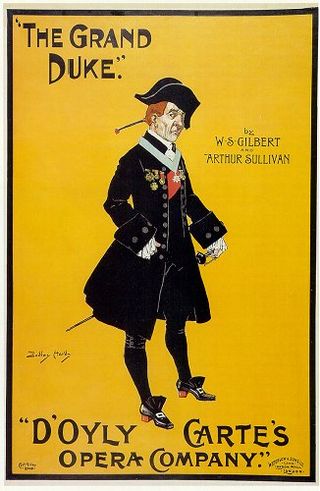
The Grand Duke; or, The Statutory Duel, is the final Savoy Opera written by librettist W. S. Gilbert and composer Arthur Sullivan, their fourteenth and last opera together. It premiered at the Savoy Theatre on 7 March 1896, and ran for 123 performances. Despite a successful opening night, the production had a relatively short run and was the partnership's only financial failure, and the two men never worked together again. In recent decades, the opera has been revived professionally, first in the US and then in the UK.

His Majesty, or, The Court of Vingolia is an English comic opera in two acts with dialogue by F. C. Burnand, lyrics by R. C. Lehmann, additional lyrics by Adrian Ross and music by Alexander Mackenzie.

Leonora Braham was an English opera singer and actress primarily known as the creator of principal soprano roles in the Gilbert and Sullivan comic operas.

Geraldine Ulmar was an American singer and actress, best known for her performances in soprano roles of the Gilbert and Sullivan operas with the D'Oyly Carte Opera Company.
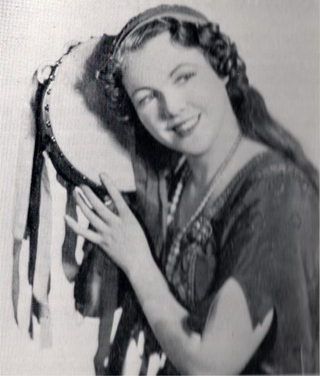
Helen Florence Roberts, later known as Betty Roberts and by her married name, Betty Walker, was an English singer and actress, best known for her performances in soprano roles of the Savoy Operas with the D'Oyly Carte Opera Company.
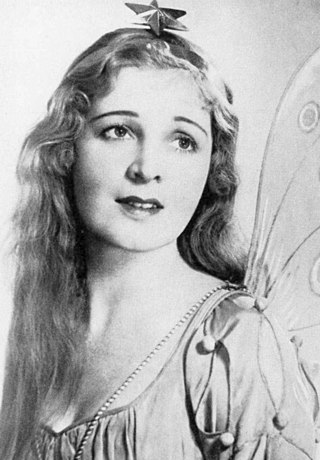
Marjorie Eyre-Parker was an English singer and actress, best known for her performances in first the soprano, and later the mezzo-soprano, roles of the Savoy operas. She performed with the D'Oyly Carte Opera Company for more than two decades and later performed with the J. C. Williamson Gilbert and Sullivan Opera Company. She married another D'Oyly Carte performer, Leslie Rands, in 1926.
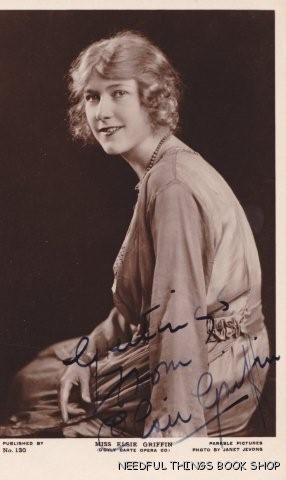
Elsie Griffin was an English opera singer, best known for her performances in the soprano roles of the Savoy Operas with the D'Oyly Carte Opera Company.

Selina Simmons Belasco Dolaro was an English singer, actress, theatre manager and writer of the late Victorian era. During her career in operetta and other forms of musical theatre, she managed several of her own opera companies and directed the Royalty Theatre in London. She is best remembered as a producer of the original production of Trial by Jury by Gilbert and Sullivan. Dolaro sang the title role in the opera Carmen in the first English language version of that opera with the Carl Rosa Opera Company. She also wrote plays and novels.

Ruth Vincent was an English opera singer and actress, best remembered for her performances in soprano roles of the Savoy Operas with the D'Oyly Carte Opera Company in the 1890s and her roles in the West End during the first decade of the 20th century, particularly her role as Sophia in Tom Jones.

Emily Mary Owen was an English opera singer and actress, known for her performances in soprano roles of the Savoy operas with the D'Oyly Carte Opera Company. She is best remembered for originating the roles of Princess Nekaya in Utopia, Limited, and the Princess of Monte Carlo in The Grand Duke, the last two Gilbert and Sullivan operas. Beginning as a child actress, Owen performed for two decades in comic opera and pantomime, mostly in England, before falling ill and dying at the age of 33.

Florence Perry was an English opera singer and actress best known for her performances with the D'Oyly Carte Opera Company.

Winifred Lawson was an English opera and concert singer in the first half of the 20th century. She is particularly remembered for her performances in the soprano roles in the Gilbert and Sullivan operas as a member of the D'Oyly Carte Opera Company between 1922 and 1932.

Alice May was an English singer and actress best remembered as the creator of the soprano role of Aline in Gilbert and Sullivan's The Sorcerer (1877).

Sylvia Cecil was an English singer and actress. She began her career in the Gilbert and Sullivan operas with the D'Oyly Carte Opera Company, with whom she performed, off and on, from 1918 until 1937. She also performed in musical theatre, concerts, music hall and variety from 1921, and broadcast on radio. In the 1940s and 1950s she starred in several musicals by Ivor Novello and Noël Coward.

Clara Millington Dow was an English operatic soprano and actress of the early twentieth century. After a concert career, she appeared at the Savoy Theatre in the first repertory seasons of Gilbert and Sullivan operas mounted by the D'Oyly Carte Opera Company in 1906–09, under the direction of the author. She is remembered as one of the last principal sopranos personally trained by W. S. Gilbert at the Savoy. In between engagements with D'Oyly Carte, Dow performed in concerts and operetta. After her retirement from the professional stage, she directed amateur productions of the Savoy Operas until she was in her seventies.
Sybil Gordon was an English singer and actress. She is best remembered for her performances in Gilbert and Sullivan roles with the D'Oyly Carte Opera Company from 1926 to 1931. Gordon started out as a concert singer. After her career with the D'Oyly Carte company, she moved to Canada, where she broadcast on the radio. In the 1981 film Chariots of Fire, she is misidentified as the fiancée of Olympic runner Harold Abrahams.
Julia Goss, was a Scottish singer and actress best known for her performances in the principal soprano roles of the Gilbert and Sullivan operas with the D'Oyly Carte Opera Company. She joined that company in 1967, remaining with them until 1979.
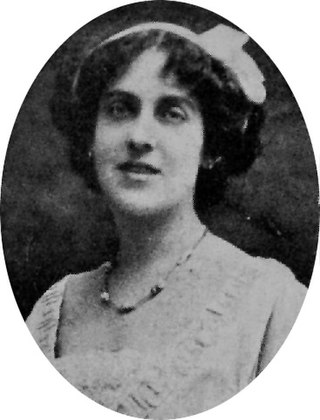
Elsie Spain, born Elsie Rickets, was an English opera singer and actress, best known for her performances in soprano roles of the Savoy Operas with the D'Oyly Carte Opera Company from 1908 to 1910 and in operettas and Edwardian musical comedies. She was one of the last leading ladies in the Gilbert and Sullivan roles personally trained by W. S. Gilbert. Among her roles in musicals, she originated the part of Princess Mathilde in the long-running The Quaker Girl.

Jennifer Gay Bishop, known by her stage name Jennifer Toye, was a British operatic soprano best known for performances with the D'Oyly Carte Opera Company in the 1950s and 1960s, including as Josephine in H.M.S. Pinafore, Mabel in The Pirates of Penzance and Yum-Yum in The Mikado. She later performed in musical theatre and opera with other companies.





















